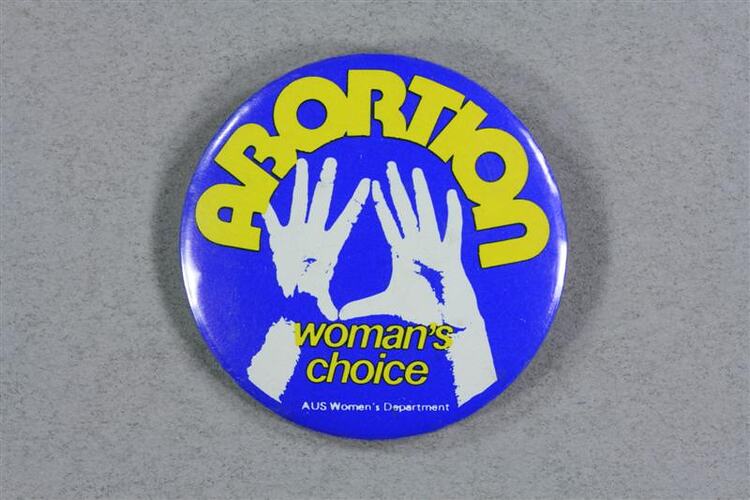Pro-choice describes the political and ethical view that a woman should have complete control over her fertility and the choice to continue or terminate a pregnancy. This entails the guarantee of reproductive rights, which includes access to sexual education; access to safe and legal abortion, contraception, and fertility treatments and legal protection from forced abortion.
Some people who are pro-choice see abortion as a last resort and focus on a number of situations where they feel abortion is a necessary option. Among these situations are those where the woman was raped, her health or life (or that of the fetus) is at risk, contraception was used but failed, or she feels unable to raise a child. Some pro-choice moderates, who would otherwise be willing to accept certain restrictions on abortion, feel that political pragmatism compels them to oppose any such restrictions, as they could be used to form a slippery slope against all abortions.
Pro-choice advocates argue that having a child is a personal choice that affects a woman's body, personal health, and future. They believe that both parents' and children's lives are better when abortions are legal, thus preventing women from going to desperate lengths to obtain illegal abortions. More broadly, pro-choice advocates frame their beliefs in terms of 'individual liberty', 'reproductive freedom' and 'reproductive rights'. The first of these terms was widely used to describe many of the political movements of the 19th and 20th centuries (such as in the abolition of slavery in Europe and the United States, and in the spread of popular democracy), whereas the latter terms derive from changing perspectives on sexual freedom and bodily integrity.
In Australia, abortion remains a subject of state law rather than national law. The grounds on which abortion is permitted in Australia varies from state to state. In every state, abortion is legal to protect the life and health of the woman, although each state defines this differently.
At Federation in 1901, abortion remained governed by the British Offences Against the Person Act of 1861. The Act made abortion illegal under any circumstances. Since then, however, abortion law has remained subject to case law and legislation in each of the states.
Generally, judicial interpretations changed in the late 1960s and early 1970s, amidst the overall mood of societal change and the increased influence of the Women's Liberation movement. For example, it was determined that abortions were not subject to criminal prosecution if they were necessary to preserve the mother's health. Over time this has come to be broadly defined so as to include the mental health of the patient, to which an unwanted pregnancy is interpreted as being injurious.
Information drawn in part from Wikipedia, 'Pro-choice' and 'Abortion in Australia'.
More Information
-
Keywords
-
Authors
-
Article types

